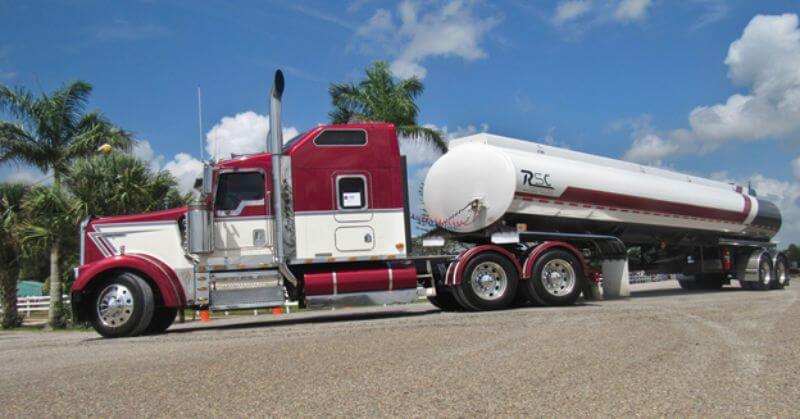One of the best ways you can go green is to hire a cargo delivery service that uses sustainable fuel methods. Moving cargo can be a major strain on the environment, so keep this in mind when selecting a company to help you go green.
Not only is it a way that you can make your company more eco-friendly, but also your customers will appreciate the green choice and help support your mission.
Not sure where to begin?
Here are the different fueling solutions to know when looking for eco-friendly transportation services.
1. Hydrogen Fuel Cell Technology
Hydrogen fuel cells are impressive in their simplicity. They generate power from hydrogen and oxygen. The magic happens within the cell.
Hydrogen from a tank in the vehicle enters one side. On the other side, oxygen from the ambient air comes in. When they meet, they form a bond and create water. This process, while simple, generates electricity. The vehicle uses the electricity to power its motor.
The only byproduct is water vapor, so it’s a clean power source. To refill, you simply pump hydrogen gas into the tank, just like traditional gas. The process is quick and easy.
Hydrogen fuel cell technology is still in its early stages. But companies like Toyota and Honda are already producing hydrogen-powered vehicles for consumer use. As technology develops, we can expect hydrogen fuel cell vehicles to become more prevalent.
Benefits of Using Hydrogen Fuel Cells
Hydrogen fuel cells serve as a sustainable fueling solution with several advantages. First, they produce zero harmful emissions. The only byproduct is water vapor, contributing to a cleaner environment.
Second, they offer high energy efficiency. Unlike traditional combustion technologies, they convert fuel directly to electricity. This reduces energy loss.
Finally, hydrogen is abundant and can be produced domestically, reducing reliance on foreign oil. These benefits make hydrogen fuel cells a promising choice for the future of transportation.
2. Natural Gas

Natural gas stands as another innovative fueling solution in the transportation sector. It is a fossil fuel, but it emits fewer harmful substances compared to traditional fuels.
Vehicles powered by natural gas produce fewer emissions and are cost-efficient. This makes natural gas popular for public transportation systems, including buses and taxis. This contributes to better air quality.
The wide availability of natural gas across the globe adds to its appeal. Predominantly composed of methane, natural gas combustion releases water vapor and carbon dioxide with fewer particulates and harmful gases.
Refueling with natural gas is fast. It’s similar to refueling with diesel or gasoline. As technology progresses, natural gas holds promising potential for a cleaner, more sustainable transportation industry.
Benefits of Using Natural Gas
Natural gas offers several benefits as a fueling solution for transportation. Firstly, it burns cleaner than other fossil fuels. It releases fewer pollutants and less carbon dioxide.
Secondly, natural gas is cost-effective. It is cheaper than gasoline and diesel. This leads to lower operating costs for vehicles.
Thirdly, it is abundant. Natural gas reserves are widespread and easily accessible. Lastly, it allows for easy conversion. Many vehicles can be retrofitted to run on natural gas.
These key benefits make natural gas a viable, eco-friendly solution for powering the transportation industry.
3. Biofuels
Biofuels are a unique fueling solution. They’re created from living organisms. This could include crops like corn, sugarcane, or even algae.
The process begins with the collection of these organic materials. Once collected, they undergo a transformation process. They’re converted into usable fuels.
These fuels are similar to petroleum-based fuels. However, they’re much cleaner. They produce fewer greenhouse gases. This helps to protect our environment.
For industries, they’re also cost-effective. Biofuel production is scalable and flexible. It can adjust to demand. Thus, biofuels pose a promising future for the transportation industry.
Benefits of Using Biofuels
Biofuels bring several advantages to the transportation industry. First, they’re eco-friendly. Produced from renewable resources, they reduce the carbon footprint.
Second, they’re cost-effective. Compared to fossil fuels, they’re cheaper, leading to economic savings. This makes them an attractive option for companies looking to reduce their environmental impact.
Third, they’re versatile. Biofuels can power a wide range of vehicles, from cars to airplanes.
Finally, they support local economies. Biofuel production can provide jobs and strengthen agriculture. With these benefits, biofuels are paving the way for a greener and more sustainable transportation industry.
4. Synthetic Fuels
Synthetic fuels, also known as synfuels, offer another intriguing fueling solution. They are man-made fuels produced from natural resources. This includes natural gas, coal, or biomass.
The process of making synthetic fuels involves converting these resources into liquid fuels. This conversion process reduces the harmful emissions often associated with these resources.
Synfuels have the potential to power vehicles without significantly altering engine design. This makes them a potential solution for the transportation industry.
These fuels are still in the early stages of development. However, their ability to leverage existing fuel infrastructure while providing cleaner combustion makes them a promising contender in innovative fueling solutions.
Benefits of Using Synthetic Fuels
Synthetic fuels, or synfuels, have several advantages as a fueling solution. First, synfuels are cleaner, reducing the emission of greenhouse gases.
Second, they utilize existing resources, including natural gas, coal, and biomass. Third, synfuels are compatible with existing engines. This means vehicles don’t need major modifications to use them.
Lastly, synfuels can leverage current fuel delivery services, making them a viable and efficient option for the future of the transportation industry.
The Future of Fueling Solutions In The Transportation Industry
The transportation industry is witnessing a paradigm shift in fueling solutions, striving to become more sustainable and eco-friendly. These four fueling solutions are redefining how we approach fuel consumption.
These innovative technologies provide accessible fuel options for diverse transportation needs. It also plays a pivotal role in addressing fuel shortages and reducing our carbon footprint.
As these technologies continue to evolve and mature, they promise a future of transportation that is more sustainable, economical, and environmentally conscious.
Did you find this post useful? There’s more where this one came from! Check out our post page and discover more great content right now.
Follow Us: Facebook | Instagram | Twitter |
Youtube | Pinterest | Google News |
Entertales is on YouTube; click here to subscribe for the latest videos and updates.














